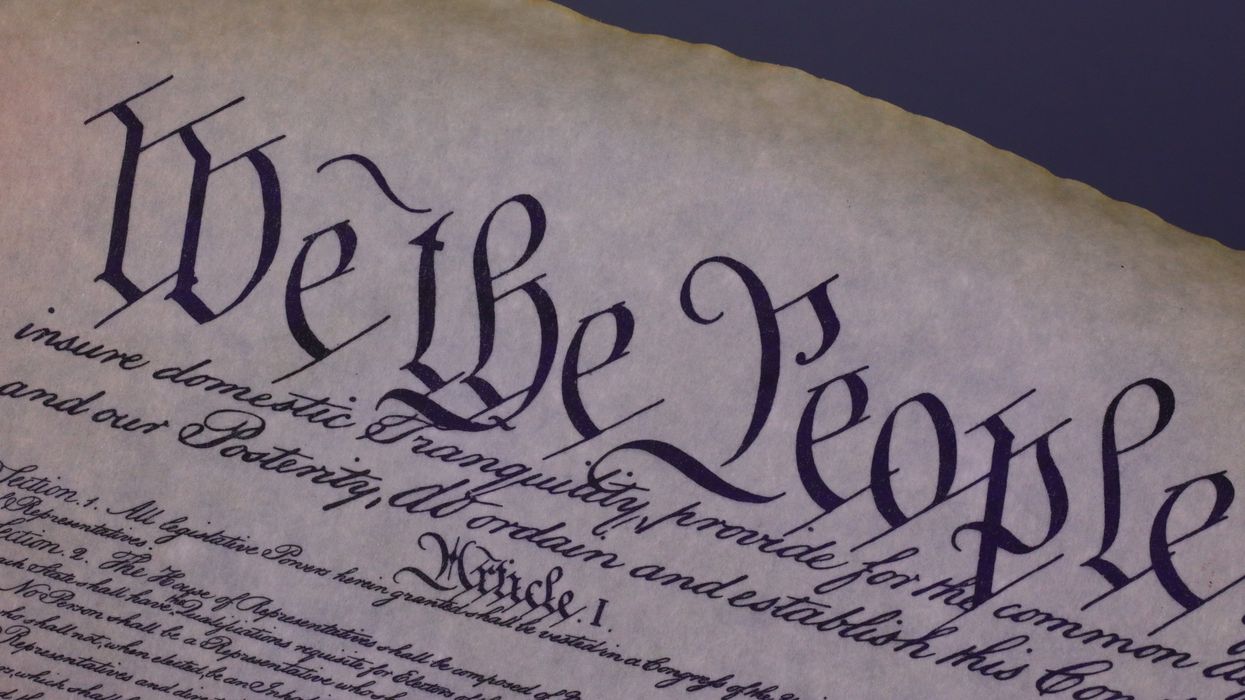Many Americans have lost faith in the basic principles and form of the Constitutional Republic, as set forth by the Founders. People are abandoning Democratic ideals to create systems that multiply offenses against Constitutional safeguards, materializing in book banning, speech-restricting, and recent attempts to enact gerrymandering that dilutes the votes of “political opponents.” This represents Democratic erosion and a trend that endangers Constitutional checks and representative governance.
First, the recent gerrymandering, legal precedent, and founding principles should be reexamined, specifically, around the idea that our Founders did not predict this type of partisan map-drawing.
In Rucho v. Common Cause, in 2018, the Supreme Court deliberated on political redistricting, taking two cases: a challenge to Republican drawn Congressional maps in North Carolina, and Democratically drawn maps in Maryland. A Republican legislator stated that he thought “electing Republicans [was] better than electing Democrats,” and, for that reason, he drew the map to weaken the Democratic vote. In the North Carolina case, the mayor consulted a self-described “serial-gerrymanderer,” and has since testified that the commission drew the maps to flip a longtime Republican district.
However, the Court ruled that partisan gerrymandering was not justiciable —that such complaints were not within the purview of judicial remedy —and that this power had been reserved to Congress and the state legislatures. The court cited a debate at the Constitutional Convention, in which Madison argued for the control of Congress to “make or alter” these maps:
[T]he State Legislatures will sometimes fail… Whenever the State Legislatures have a favorite measure to carry, they would take care so to mould their regulations as to favor the candidates they wished to succeed.
The ruling also highlighted state-level solutions, such as legislatures establishing independent redistricting commissions. The passage of Proposition 50, which suspends California’s independent commission, indicates that these are some of the Democratic checks voters no longer trust.
In a poll by the PRRI, 48 percent of Republicans and 29 percent of Democrats agreed with the statement that “Because things have gotten so far off track in this country, we need a leader who is willing to break some rules if that’s what it takes to set things right.” This is consistent with Governor Newsom’s messaging of “fighting fire with fire.”
In a PEW Research poll, 32 percent of Americans say “rule by a strong leader or the military, would be a good way of governing.” This belief is translating to Undemocratic policy. For one, Trump signed EO 14190 “Ending Radical Indoctrination in K-12 Schooling.” Under this executive order, The Handmaid’s Tale, books about Roe v. Wade and abortion, Brave New World, many books about mental health, including Thirteen Reasons Why and The Lovely Bones, Dunbar-Ortiz’s An Indigenous Peoples' History, the autobiography of Fredrick-Douglass, and What Were the Negro Leagues have been banned from school libraries and curricula. On the other side, leaders like Gavin Newsom have passed laws protecting books about LGBTQ+ and racial achievements, but have allowed districts to ban material with perceived, racially harmful language; the Burbank school district has banned Huckleberry Finn, Of Mice and Men, Roll of Thunder, and Hear My Cry because of “alleged potential harm” to black students.
Trump deploying the national guard, state legislatures passing laws that prohibit hate speech (i.e., Connecticut), and banning the burning of flags are additional examples of the increasing bipartisan support for leaders who exercise unjust and unconstitutional powers. In the same PRRI poll, mentioned above, 23 percent stated their belief that “true American patriots may have to resort to violence to save our country.”
This mind for political violence takes on a new light after the recent election of Jay Jones to AG of Virginia. In private texts with his colleague, Jones stated that he hoped the children of his political opponent would die in their mother’s arms. His political colleague confronted him on these remarks, and he justified, “Only when people feel pain personally do they move on policy.” The election of Jones indicates that, if ~20 percent of Americans say they support political violence, a majority do not view these types of graphic comments as disqualifying for positions of Democratic leadership.
In a 2024 Gallup poll, nearly half of the respondents opposed government mandates to vaccinate children. The argument against public health mandates is that parents (not the government) should decide what is in the best interest of their children. However, when the President or a governor talks about restocking the school library shelves, they have been able to leverage our cultural anxiety and deliver the message that you are the one choosing what content to leave in or throw out. This goes beyond a paternalistic government, because it is about power, not trust. People see our politics as a “winner takes all,” and 40 percent of Americans saying that we need leaders “willing to break rules,” does not mean they trust those leaders to be schoolboys, but that—even if those leaders are apparently corrupt, self-interested, or dangerous—they need excessive power to overcome “the other side.” The solution is public dialogue: if people are exposed to their opponents, no matter how hostile the conversations begin, there is a higher likelihood that they will perceive their king-like politicians as the greater threat to liberty than whoever sits across the aisle.
The trend of relinquishing our First Amendment rights, compromising the integrity of our elections, and supporting political violence—or accepting candidates exposed to hold those beliefs—has destabilized our Democracy. This ballot-bullying and attempting to restrain the other party to protect your rights can only be resolved by starting a national dialogue and acknowledging that the “the stakes are too high” argument only elevates politicians who have contempt for Democracy and ambitions to strip out the checks and balances on their power.
Luke Harris is a Fall Intern with the Fulcrum.
The Fulcrum is committed to nurturing the next generation of journalists. To learn about the many NextGen initiatives we are leading, click HERE.




















